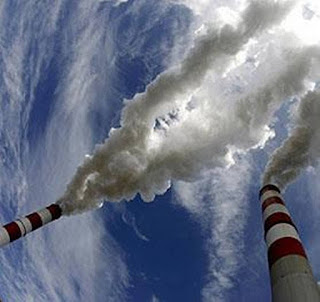The piece came in The Hindu, Op-ED on October 31, 2017
Web Link: https://www.thehindu.com/opinion/op-ed/hits-and-misses/article19951311.ece
Pradeep Baisakh
Web Link: https://www.thehindu.com/opinion/op-ed/hits-and-misses/article19951311.ece
Pradeep Baisakh
Tracking the progress of nations on sustainable development goals
The meeting of the UN high-level political forum on sustainable development (HLPF) took place in New York from July 10-19 to discuss the progress made on the sustainable development goals (SDGs) of the 2030 Agenda. Forty-three member nations presented their report cards in the form of voluntary national reviews (VNRs). Around 5,000 people participated — half of them from civil society and private entities. Eighty ministers from various countries, holding diverse portfolios such as external affairs, planning and budget, also attended. Before the meeting, the governments undertook long consultations to prepare their reports. Was the exercise worth it?
The reviews show that countries have taken steps to incorporate SDGs in their national plans and policies and identified polices which already include some of the goals. Governments have created new institutions, or have used existing institutions, to facilitate execution of the SDGs. On this count, the HLPF/VNR exercise has yielded results.
However, there was significant apathy or antipathy among governments to consult and include suggestions from civil society actors in the VNRs. Except in Europe, and some other countries like Brazil and Japan where governments incorporated the inputs of civil society, the process remained largely non-inclusive or superficial. In India, too, the process was patchy. There was also a visible lack of awareness among civil society actors across the world about the mechanism and processes of VNR. The secretariat for HLPF of the UN Department of Economic and Social Affairs has no place for carrying the shadow reports on SDGs of civil society organisations.
In the VNRs, countries generally outlined how well they have performed. Barring some countries in Latin America and Europe and possibly a few in other regions, stress on critical areas and ways to address them was missing. A survey done in 20 VNR nations by Action for Sustainable Development, a global civil society organisations’ platform on SDGs, suggests: “In many cases, although there is a sense that the SDGs are included in existing national plans, the ‘transformational’ aspect of the agenda has been significantly diluted or lost.”
The shadow reports prepared by civil society on SDGs find that the scale of inequality is constantly rising while governments’ ‘austerity’ measures of cutting public investment in the social sectors is continuing. There is simultaneously reduction in the corporate taxation. This is worrying as the UN Secretary General’s report finds that in 2016, only 45% of the world’s population was protected by some social protection system.
A multidimensional poverty index ought to be adopted to analyse domestic poverty conditions as suggested by some nations. A clear road map needed to address pressing challenges of refugee crisis, terrorism, fundamentalism, increasing hunger, inequality and climate change. The HLPF process needs to be strengthened by formalising multi-stakeholder consultations, discussing critical challenges, and making the ministerial declaration mandatory for nations to fulfil.
Pradeep Baisakh works with GCAP, a global campaign on poverty and inequality


No comments:
Post a Comment